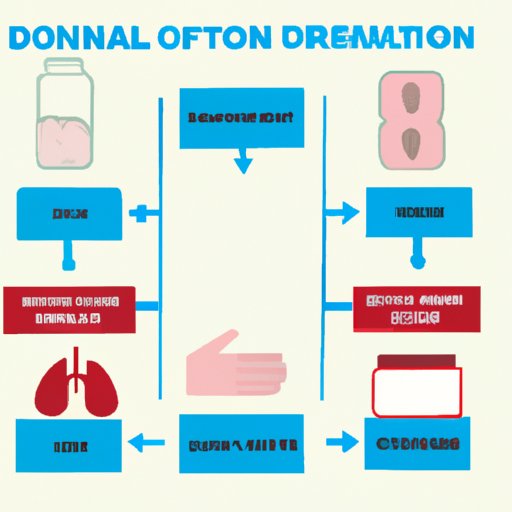Introduction
Donating your body to science is an honorable way to leave a lasting legacy. By donating your body, you can help advance medical research, provide learning opportunities for students, and benefit humanity in general. In this article, we’ll discuss the definition of donating your body to science, the benefits associated with it, and the process for doing so.

Research Organ and Tissue Donation Requirements
Before you decide to donate your body to science, it’s important to understand the requirements for doing so. Generally speaking, anyone who is legally able to make the decision can donate their body. However, there are some restrictions based on age, health, and other factors.
According to the National Institutes of Health, “Most people over the age of 18 who are free from any contagious diseases are eligible to donate their bodies for medical research or educational purposes.”1 Additionally, many institutions require that donors have no history of major illnesses such as cancer, HIV/AIDS, or severe mental illness. It’s important to note that some institutions may have additional requirements, so it’s important to check with the individual organization before making the decision to donate.
Contact a Local Medical School or University
Once you’ve determined that you meet the requirements for donating your body to science, the next step is to contact a local medical school or university. Most institutions have programs dedicated to body donation, and they will be able to provide you with more information about the process.
You can find a local institution by searching online or asking friends and family if they know of any nearby universities or medical schools. Once you’ve identified a few potential options, it’s important to contact each one directly to learn more about their specific requirements and processes for body donation.
Learn About the Potential Benefits of Donating Your Body
When considering whether to donate your body to science, it’s important to understand the potential benefits. By donating your body, you can help advance medical research and provide learning opportunities for students. According to Dr. Robert J. White, professor of Neurosurgery at Case Western Reserve University School of Medicine, “The greatest benefit [of donating your body to science] is that it helps to advance medical knowledge and understanding of human anatomy and physiology.2“
Additionally, donated bodies can be used to develop new surgical techniques, test implantable medical devices, and study the effects of various diseases. All of these advances can ultimately lead to improved treatments and better patient outcomes.

Understand the Process and Timeline for Donating Your Body
Once you’ve decided to donate your body to science, it’s important to understand the process and timeline for doing so. First, you’ll need to fill out the necessary documentation, which typically includes a consent form and medical history questionnaire. You’ll also need to arrange transportation of the body after death.
It’s important to note that most institutions have a limited window of time in which they can accept donations. Generally speaking, the body must be received within 48 hours of death. Additionally, some institutions may have additional restrictions, so it’s important to ask about these when contacting the institution.
Fill Out Necessary Documentation
Once you’ve contacted a local institution and learned more about their process for body donation, the next step is to fill out the necessary paperwork. The exact forms you need to fill out will vary depending on the institution, but typically include a consent form and medical history questionnaire.
You’ll also need to provide contact information for two people who can be notified after your death. These individuals should be aware of your plans to donate your body and be able to provide additional information if needed.

Arrange Transportation of the Body After Death
Once you’ve filled out the necessary paperwork, the next step is to arrange transportation of the body after death. Generally speaking, the institution you’ve chosen will be responsible for transporting the body. However, it’s important to confirm this ahead of time and make sure you understand the process.
In some cases, you may need to make arrangements with a funeral home or other third-party provider. Additionally, you may need to pay a fee for the transportation, so it’s important to ask about this ahead of time as well.
Confirm Your Family Understands Your Wishes
Finally, it’s important to make sure your family knows your intentions and understands your wishes. While it’s not always necessary to talk to them about your decision, it can be helpful to do so in order to ensure everyone is on the same page. Additionally, having a discussion ahead of time can help ease any potential confusion or misunderstandings later on.
Conclusion
Donating your body to science is an honorable way to leave a lasting legacy. By donating your body, you can help advance medical research, provide learning opportunities for students, and benefit humanity in general. Before deciding to donate, it’s important to understand the requirements and process for doing so. Additionally, it’s important to make sure your family understands your wishes.
If you’re interested in donating your body to science, we encourage you to contact a local medical school or university to learn more about their specific requirements and processes. Doing so can help ensure your donation goes towards helping others and advancing medical research.
(Note: Is this article not meeting your expectations? Do you have knowledge or insights to share? Unlock new opportunities and expand your reach by joining our authors team. Click Registration to join us and share your expertise with our readers.)
